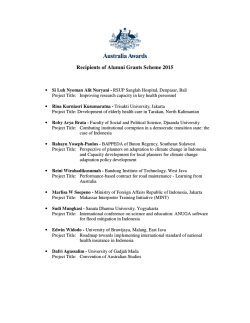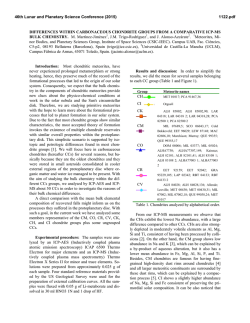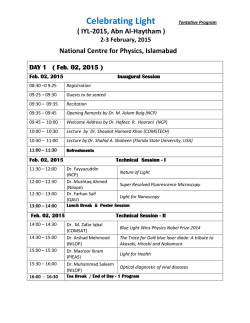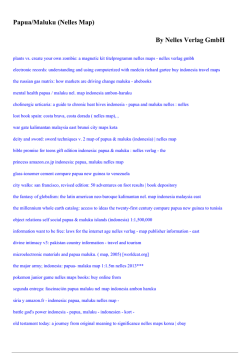
Download Newsletter - Canggu Community School
Canggu Community School, Bali, Indonesia Page 1 nurturing learning, knowledge and diversity 4 February 2015 Volume 10.3.3 Forthcoming Events Message from Director Five years ago, a strategic plan was developed and put in place for the school. This plan gave us, the school community, the goals to work on for the following five years. Those five years are nearly up, how time flies! And I am delighted to report that we have achieved our goals. The overarching goals for CCS 2010/11 to 2015/16 were: Goal 1: To develop a well-balanced world class education programme from PS to Year 13. A major achievement to realise this goal has been attaining the IB DP authorisation and we now have our first IB DP class up and running. In addition to that, new curriculum areas have been introduced, such as French, Spanish, Drama and Design Technology. A continued focus is the development of Inquiry Based Learning across the whole school. Goal 2: To achieve accreditation status from an international accrediting agency by 2013 CIS and WASC accreditation was proudly achieved last year. We are now in the process of compiling our first progress report which will be sent off at the end of this year. We will be visited again by the accrediting authorities in 2019. Goal 3: To develop a marketing strategy to ensure the longevity of CCS In addition to our website, Yearbook, advertising and other publications, our most successful marketing strategy is from our community: students, parents, teachers and support staff. Goal 4: To comply with Indonesian rules and regulations As you may know, there have been some recent new regulations for international schools in Indonesia. As we are Canggu Community School, without the word “International”, we have not had to change our name; however, we have had to reapply for new licences. We now have all four licences for each section of the school: TK (Early Years), SD (Primary) SMP (Middle School) and SMA High School. We continue to work to comply respectfully with the regulations, meanwhile maintaining our integrity as a world class international school. Thursday 5th February Swimming Carnival, KS2, 8.45 12.00pm. Friday 6th February Primary assembly, Year 2J, MFH, 1.45pm. Swimming Carnival, KS3-5, 8.45 12.00pm. Bake sale; Year 1. Friday 13th February Primary assembly, Year 4M, MFH, 1.45pm. Bake sale; Year 2. Tim Fordered; Inspirational speaker, 1.15 - 2.15pm, Year 11 & 12. Friday 20th February Primary assembly, Year 2C, MFH, 1.45pm. Bake sale; Year 3 Birthdays This Week 5 Feb 6 Feb 7 Feb 8 Feb ************* Continue to page 2 9 Feb 11 Feb Imogen 3W Grace Kalila Kai Marcus Aria Lucia 6MC 7KH 9MH 4M 11MS 4M Victoria Jasper Jai Musashi Pepe 10MM Rec-A 7KH 8BM 9MC Lorenzo Chine Samantha 9MH 12 12 Canggu Community School, Bali, Indonesia Page 2 CCS Goal Specific to Social Programmes related to Education (added by the Yayasan in May 2013) The development of our Gotong Royong programme has been a big contribution to reaching this goal. So now is the time to start setting our next five year plan. To do that, we need input from all the stakeholders in the school, including the parents. Everyone will be asked the same four questions: What are the current strengths of CCS? What aspects of CCS could be further developed? What opportunities are there for CCS? What are the challenges that CCS is currently facing? I will be holding a coffee morning this term to address these questions. We will also be sending a link to an electronic survey asking the same questions. The coffee morning will be on Tuesday February 17th, after drop off, in the staff room. We look forward to, and value your input into this process. Regards, Beccy Fox CCS Director Counsellor Corner Samantha Brossettee Teaching Independence Self-Determination: This small phrase has had great significance in my own life! Essentially, selfdetermination is about making choices and decisions; it’s about a person knowing who he/she is, what they want, and how to go about getting it. Every parent wants their children to lead happy lives; when we dream about the future, parents have hopes that their children will be part of a community, have friends, live independently, and enjoy health and well-being. We already know that the skills and behaviours children develop early in life lay a strong foundation for their adolescence and adulthood. For this reason, we need to think about how we can begin early to promote lifelong independence for our children. Self-determination is not about letting young children make every single decision that affects their lives, such as what time to go to bed or deciding not to wear a coat in the winter time. We know that children need very clear expectations, protection from harm, and loving guidance from the adults in their lives. Selfdetermination is about providing opportunities so that children develop the skills necessary to become independent as well as to interact freely and joyfully within their environment. Model independence. In teaching your children independence, first remember to be independent yourself. There is a healthy balance that is needed in all of your relationships that helps you to maintain your own independence and individuality. If you are able to withstand being separate, your children will learn this from you. Problems will arise if you are an overly intense parent or guardian. For example, the so-called helicopter parent is one who cannot abide to be apart from the child but hovers over his or her every action, to "be there" and to "ensure safety". This is often borne of one's own anxiety or worries, and will often require personal soul searching to overcome. Children subjected to such parenting can grow up to be anxious and afraid of independence. Do your best to manage your own fears and not pass them on to your children. Look at what you're modelling to your children in your primary relationship with your spouse or partner. Co-dependent, enmeshed or subservient behaviours with the other caregiver can send helpless signals to children, which can in turn teach them to be afraid of being separate too. For the sake of yourself and the children, such behaviours need to be overcome. **************** Continue to page 3 Canggu Community School, Bali, Indonesia Page 3 Teach your children that it is okay to be separate. Help your children to see that it's both acceptable and occasionally desirable to sometimes be alone, to peacefully disagree with another’s opinion, or to want personal time. Aim to model healthy conflict in front of your children. While yelling and blame have no part in child raising, arguing for something that matters in a calm and moderated manner is something every human being needs to learn as a useful skill. And there will be times when you slip up, after all we are only human––rather than pretending it never happened, always apologise. If a child is old enough, also explain yourself. Include your children in everyday household chores that involve their own stuff. It is much easier for children and for that matter, anyone to identify and want to help with things that they care about and are familiar with. When they are finished with their meal, be sure to encourage them to put their dishes in an appropriate place, such as the sink. If you want them to clean their rooms, begin with reachable goals, like asking them where the books go and then let them follow by putting them away. The goal is to show them that you entrust them with small independent decision making when it comes to their own belongings. Help in the house can begin from as young as 3. Small tasks at first, then increase the challenges as the child grows older. Search for opportunities to show examples of your own individual small accomplishments. An example could be something as simple as struggling to open a jar, but not giving up, and striving to get it open without any help. Draw attention to the experience by saying such words as: “Look, Mummy tried really hard, didn't give up and I did it!" Your children will then see that you try to accomplish things alone––and very often succeed. Some children have a tendency to give up quickly. It is even more important to model perseverance with such children, and to provide them with encouragement to keep trying. Do not criticize their efforts; instead encourage their growth through repeated attempts. Eventually success at a task will prevail, with repeated learning and your support. When you do not succeed at something, model coping behaviour––this is as important as the self-praise for success. Teach them, through your actions, that failure is not only survivable, but an opportunity to do something else or give it yet another go based on the lessons learned. Remind your children that if they ever feel they cannot do things alone, you are there and will assist them. Remember though, this assistance can range from physical help to only offering verbal encouragement because you know that their particular task at hand is achievable and they will benefit greatly if they do it alone. Just like we need to practise the piano to become proficient, young children need on-going practise to gain skills related to self-determination. When children have numerous opportunities to practise making basic choices or solving simple problems, they build confidence and trust in their own abilities. Children also build the competence and ability to master new skills that can last a lifetime. Canggu Community School, Bali, Indonesia Page 4 Dear readers, we would like to inform you that there is a new magazine committee in our beloved Canggu Community School… CCS Times! A magazine will be released every beginning of semester and will contain news and information about the happenings at school and around. Every family who has their children enrolled at CCS will receive this magazine at the end of the semester. This magazine is being solely run by students and is self-funded. Our first issue for last term is almost ready to be printed and distributed, but… WE NEED SPONSORS! We are offering spaces for advertising with the following prices. Category A: 1 side full page – IDR 1,500,000 Category B: half page – IDR 800,000 Category B: 2 sides (a spread) – IDR 3,500,000 Category C: Covers – IDR 2,000,000 Category D: Logo on the back page – IDR 400,000 Putting up an advertisement or sponsoring our magazine will benefit you because your business will be exposed to every individual in our lovely international community here at CCS. If interested, please contact one of the following: Head Editor (Samantha) : 081999954025, [email protected] Finance (Sacha): 081227730019, [email protected]
© Copyright 2026











